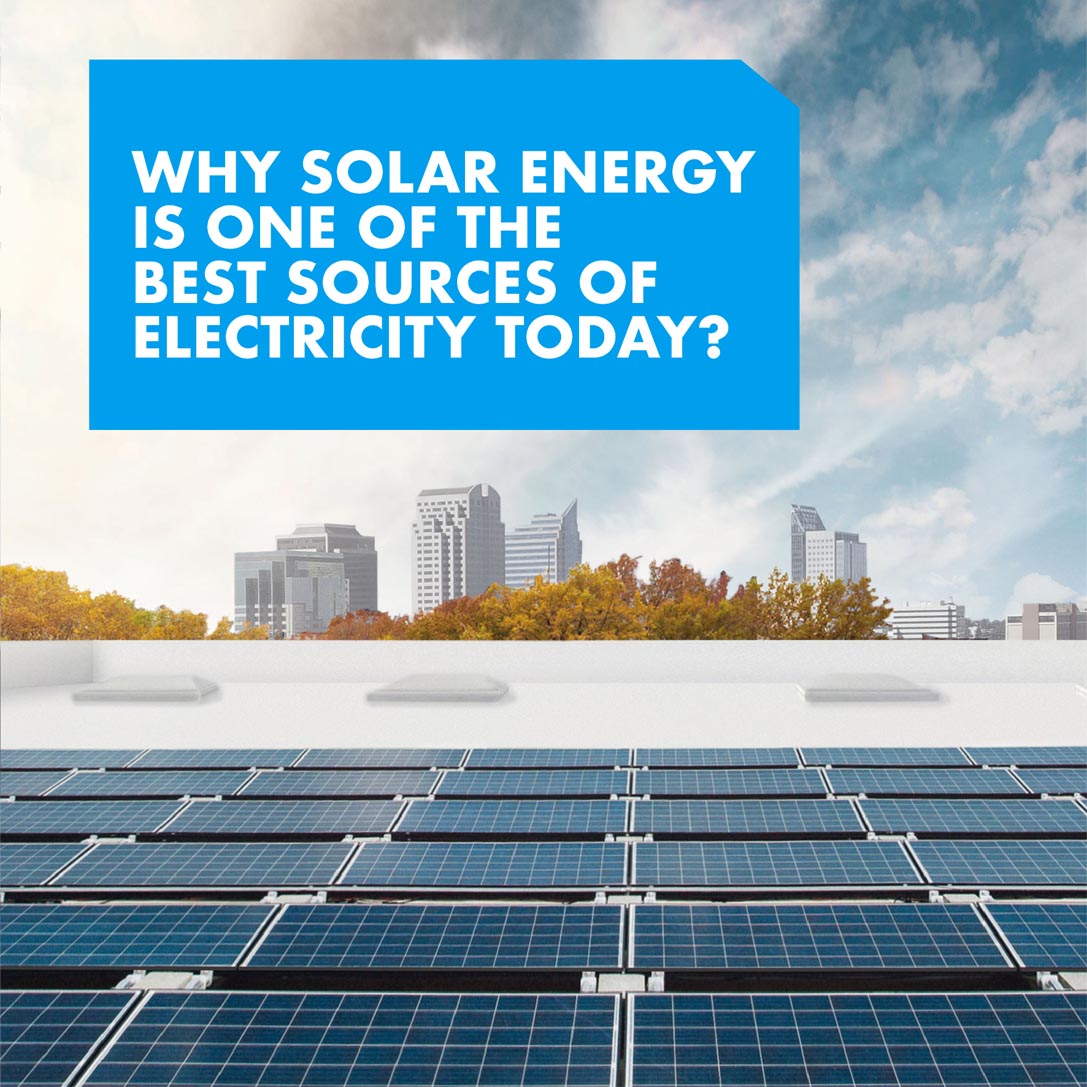
Why Solar Energy is One of The Best Sources of Electricity Today?
Do you remember if Indonesia, especially the island of Java, experienced a mass blackout in August 2019? The incident caused by a system disturbance at Perusahaan Listrik Negara (PLN) caused huge economic losses because many activities were stopped.
This incident is one of the considerations that we need to be more independent in obtaining energy resources. As we know, almost all Indonesian people depend on the supply of their energy needs on PLN.
We must also start thinking about renewable energy sources that are more environmentally friendly. The conventional energy source that is widely used today comes from fossil energy which could be depleted in the next few years.
One such alternative is solar energy. Based on data from the Ministry of Energy and Mineral Resources, the number of solar panel users in Indonesia has reached 1,580 people by December 2019. This number has more than doubled compared to the previous year.
How Big is the Potential of Solar Energy in Indonesia?
Indonesia has the potential to become the country with the largest solar energy producer in the world. Three points affect this:
- Geographical Advantages
Geographically, Indonesia is on the equatorial line with abundant solar energy. Based on data from the Indonesia Energy Outlook 2019, the potential for solar energy in Indonesia is 208 GW or three times bigger than 2020 in total installed capacity.
The potential for solar energy in Indonesia is also much greater than other renewable energies such as wind energy, ocean energy, geothermal, and hydropower.
- Cheaper Costs
Many are still hesitant to use solar energy because it requires expensive initial capital to buy the equipment. However, based on data from the Frankfurt School – UNEP Collaborating Center 2019, the Levelized cost of solar energy is getting cheaper every year.
This is due to the increasingly tighter competition between manufacturers and developers. To win over the market, companies often offer lower prices for the equipment than before. Technological improvements also affect the provision of cheaper equipment.
- Government Policy
Indonesia has also committed to reducing greenhouse gas emissions by 29 percent by 2030. This was done by signing the Paris agreement in 2015.
This means that the use of renewable energy will get policy support from the government. This government policy will assist in the provision of raw materials and fiscal incentives. One of the implementations of this policy is the construction of the largest solar power plant in Indonesia in Kupang, Nusa Tenggara Timur.
Environmentally Friendly
Quoted from the Green Match, solar energy has the least impact on the environment compared to other energy sources. The advantages of solar energy are that it does not produce greenhouse gases, does not pollute water, requires less water for maintenance, and is free of noise pollution.
Quoted from IDNTimes, the 5,000 MW energy produced from PLTS, if converted, would be equivalent to planting 18,124 trees, saving 1.5 million diesel fuel for PLTD and preventing CO2 emissions from PLTD of 3.6 million tons. Imagine how big the benefits would be if PLTS became the main electricity source in Indonesia.
The use of solar power plants can also be applied anywhere. This is useful for remote areas where it is difficult to get access to other sources of electricity.
Interested in studying the application of solar energy? SGU offer the Sustainable Energy and Environment study program for those of you who are interested in this field. What are you waiting for? Do not hesitate to contact our consultants and find out more.
About SGU
SWISS GERMAN UNIVERSITY (SGU) is an international university in Indonesia, was established in 2000 as a joint effort between Indonesia, Germany, Switzerland, and Austria. We are the pioneer in offering international curricula in Indonesia. Qualified students can graduate with a Double Degree from Indonesia and Germany, which SGU provides in cooperation with partner universities; surely a valuable tool for your future careers. Ever since its establishment, SGU has been dedicated to delivering quality education in line with international standards and aims to develop skilled professionals who meet the demands of the industry. In order to achieve its objectives, SGU offers quality-oriented learning through 12 Bachelor’s Degree Programs and 4 Master’s Degree Programs ranging from Engineering, Information Technology, and Business to Life Sciences and Social Sciences. Furthermore, with small class sizes, and with English as the medium of instruction, you can look forward to pursuing your tertiary education and degree with full confidence.
Back
